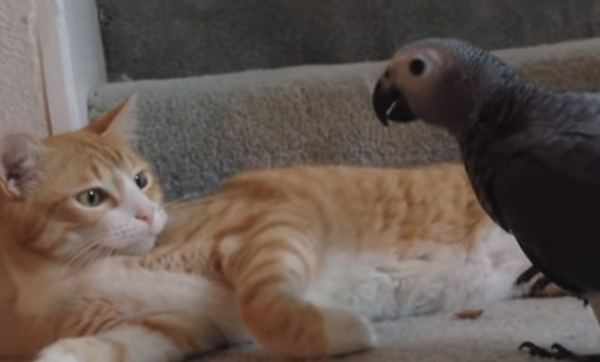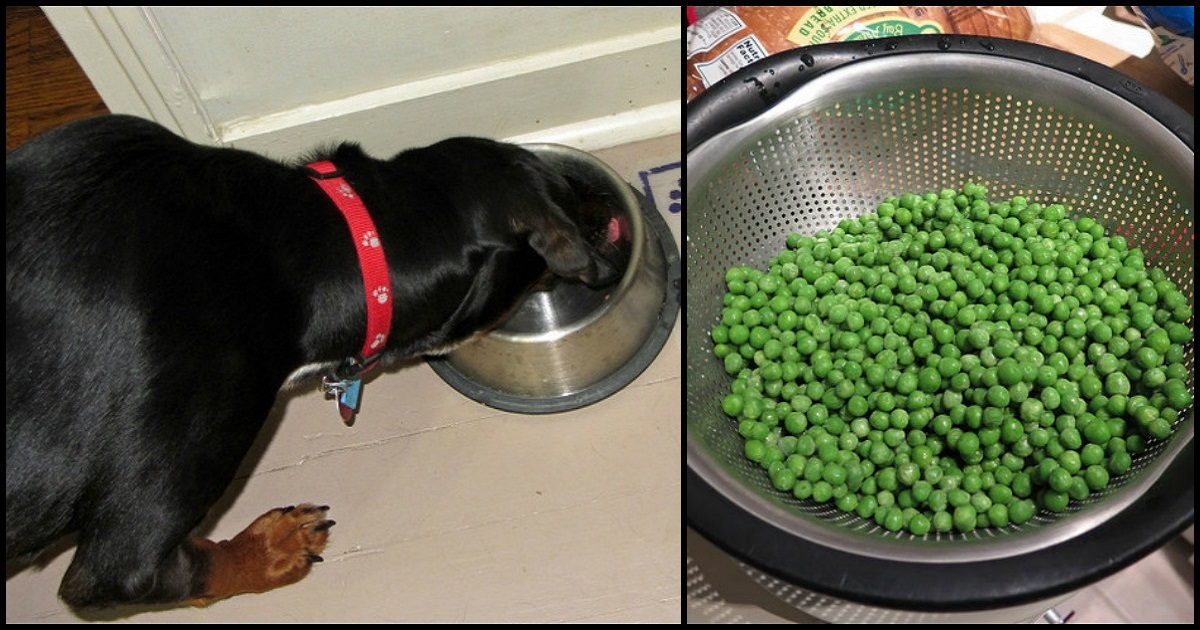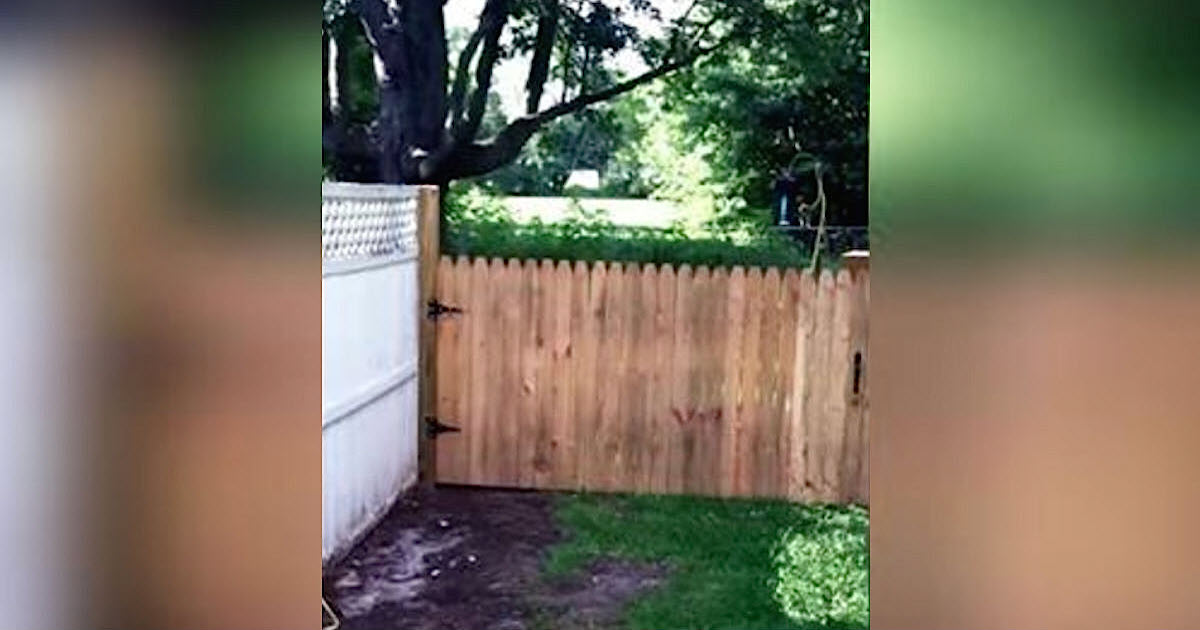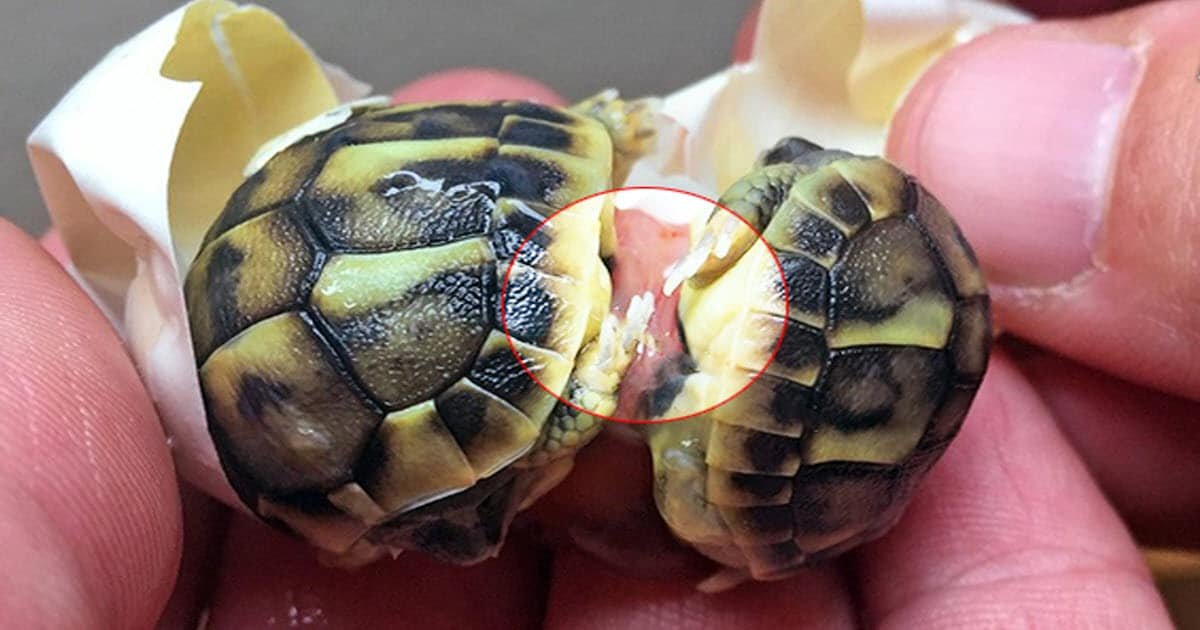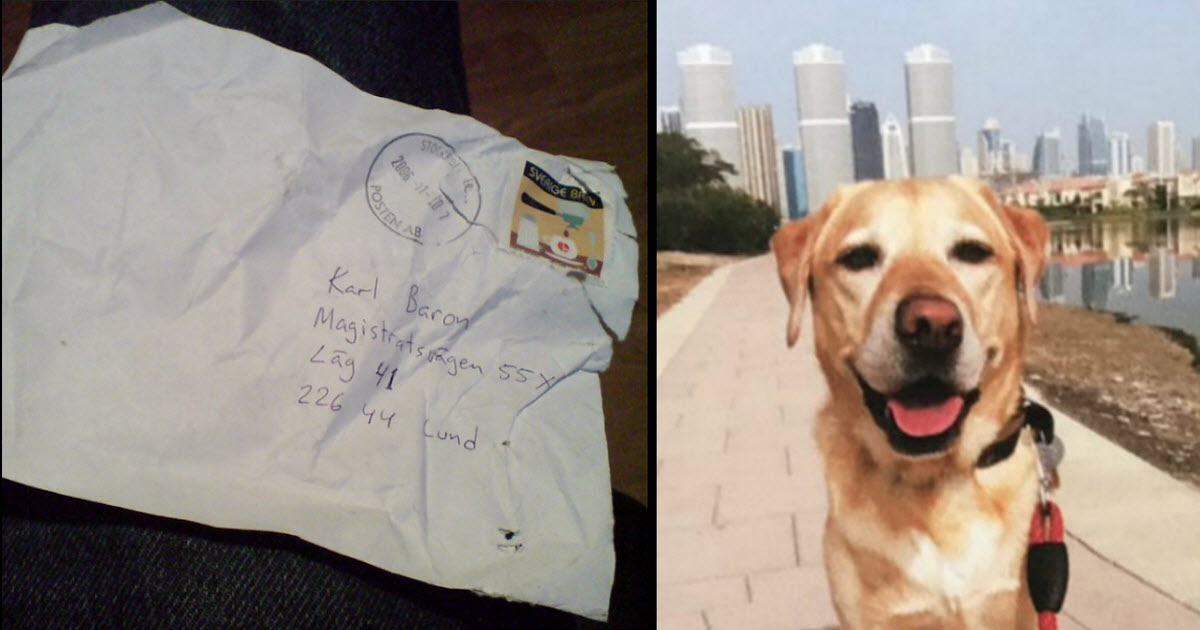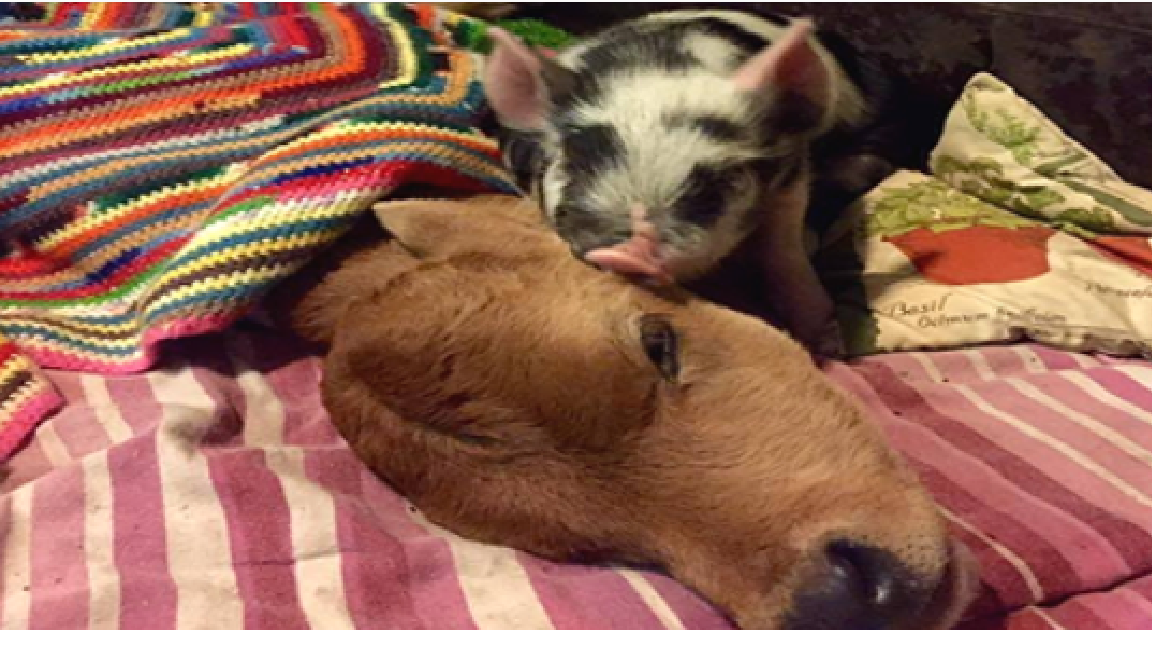When it comes to feeding our feathered friends, there are often questions about what is safe and healthy for them to consume. One common snack that many people wonder about is popcorn. Can birds eat popcorn? Let’s find out!
Birds can indeed eat popcorn, but there are some important considerations to keep in mind. While plain, unsalted, and unbuttered popcorn can be given to birds in small quantities, it should not replace their regular diet of seeds, fruits, insects, and other natural foods. Popcorn lacks essential nutrients that birds need for a balanced diet, so it should be offered as an occasional treat, not a staple food.
It’s crucial to ensure that the popcorn is not seasoned with salt, butter, or any artificial flavorings. These additives can be harmful to birds and should be avoided. Additionally, unpopped kernels or corn can pose a choking hazard to birds, so make sure to offer popped popcorn only.
Can Birds Eat Popcorn? Yes, if it is popped. No, if it is unpopped.
- Birds can eat plain, unsalted, and unbuttered popcorn in moderation.
- Avoid seasoning popcorn with salt, butter, or artificial flavorings.
- Only offer popped popcorn, as unpopped kernels can be a choking hazard.
- Popcorn should be given as an occasional treat, not a replacement for a balanced diet.
- Monitor the bird while it’s eating popcorn to ensure its safety.
While popcorn can be a stimulating and entertaining snack for birds, it’s important to remember that it should be part of a varied diet that includes more nutritious options. Offering a variety of bird-friendly foods, such as seeds, fruits, nuts, and insects, ensures that our avian friends receive the necessary nutrients for their overall health and well-being.
So, the next time you’re enjoying a movie night and have some popcorn left over, feel free to share a small amount with your feathered visitors. Just remember to follow these guidelines and enjoy responsibly feeding popcorn to your bird buddies!
Is Popcorn Safe for Birds? Important Considerations
When it comes to feeding popcorn to our avian friends, it’s important to understand the potential dangers involved. While popcorn itself is not toxic to birds, there are important considerations to keep in mind.
The safety of popcorn for birds depends on several factors. First, it is crucial to avoid giving birds popcorn that is salted, buttered, or seasoned with artificial flavorings. These additives can be harmful to birds and should be avoided at all costs. Additionally, unpopped kernels or corn can pose a choking hazard to birds, so it’s essential to offer popcorn in its popped form.
Another important consideration is the amount of popcorn given to birds. Popcorn should be offered as an occasional treat or supplement to a balanced diet. It should not be the primary source of nutrition for birds. While popcorn provides carbohydrates for energy, fiber for a healthy digestive system, and small amounts of protein, minerals, and vitamins, it lacks essential nutrients that birds need for proper growth and development.
READ: Can Birds Eat Chocolate? Find Out in Our Detailed Guide
Choking hazards and the importance of monitoring
One of the biggest concerns when feeding popcorn to birds is the risk of choking. Birds, especially smaller species, may struggle with larger pieces of popcorn. It’s important to offer small, easily manageable pieces to smaller birds and larger pieces to larger birds. Additionally, it’s crucial to monitor the bird while it’s eating popcorn to ensure it doesn’t experience any choking or other issues.
In conclusion, while popcorn can be a safe and enjoyable treat for birds when given in moderation and in its natural form, it should never replace a bird’s regular diet. It’s important to consider the type of popcorn, how it’s prepared, and how much is offered to birds. By following these important considerations, we can ensure the safety and well-being of our feathered friends while still enjoying the occasional popcorn treat together.
The Benefits of Birds Eating Popcorn
When it comes to providing healthy snacks for birds, popcorn can offer several benefits. While it shouldn’t replace a bird’s regular diet, offering popcorn as an occasional treat can provide some nutritional value. Popcorn is a good source of carbohydrates, which can provide birds with the energy they need for daily activities.
In addition to carbohydrates, popcorn also contains fiber, which promotes a healthy digestive system for birds. The fiber content helps regulate their digestion and can prevent digestive issues. Moreover, popcorn contains small amounts of protein, minerals, and vitamins, which can contribute to a bird’s overall well-being.
Aside from its nutritional benefits, popcorn can also be an entertaining and stimulating snack for birds. Its crunchy texture and unique shape can attract birds to your yard, making it a great addition to your bird-watching experience. Just make sure to offer popcorn in moderation and as a supplement to their regular diet of seeds, fruits, insects, and other natural foods.
Enhancing the Bird-Watching Experience
Offering popcorn to birds can not only provide them with a tasty snack but also enhance your bird-watching experience. You can scatter popcorn in your yard or place it in bird feeders to attract a variety of bird species. Watching birds enjoy their popcorn treat can be a joyful and rewarding sight, as it allows you to observe their feeding behaviors up close.
Remember, though, that popcorn should always be given in moderation. It should not be the primary source of nutrition for birds, as they require a diverse diet to meet their nutritional needs. By offering a balanced variety of bird-friendly foods, including popcorn as an occasional treat, you can help support the health and well-being of your feathered friends.
READ: Can Birds Eat Cheese? Uncovering Facts & Myths!
Preparing Popcorn for Birds: Dos and Don’ts
When it comes to feeding popcorn to birds, there are some important considerations to keep in mind to ensure their safety and well-being. Here are some dos and don’ts for preparing popcorn for our feathered friends.
Do:
- Use plain, unseasoned popcorn: Birds should only be given popcorn that is free from salt, butter, or any artificial seasonings. Plain, air-popped popcorn is the safest option.
- Allow the popcorn to cool: Birds can easily burn their mouth or throat if they eat hot popcorn. Always let the popcorn cool down before offering it to the birds.
- Offer small pieces: Smaller birds may struggle with larger pieces of popcorn, so it’s best to break it into smaller, manageable pieces for them to enjoy.
- Monitor the bird while it’s eating: Keep an eye on the bird while it’s consuming the popcorn to ensure it doesn’t experience any choking or other issues. Safety should always be a top priority.
Don’t:
- Use salted or buttered popcorn: Salt and butter can be harmful to birds and may cause health issues. Avoid offering popcorn that has been seasoned or prepared with these additives.
- Give unpopped kernels: Unpopped kernels can present a choking hazard to birds. Make sure the popcorn is fully popped before offering it to them.
- Overfeed with excessive amounts: Popcorn should be offered as an occasional treat or supplement to a balanced diet. It should not be the primary food source for birds, as they require a variety of nutrients from other natural foods.
By following these dos and don’ts, you can safely prepare popcorn for birds and offer them a tasty and entertaining snack. Remember to prioritize their health and always provide a balanced diet that includes other bird-friendly snacks and foods.
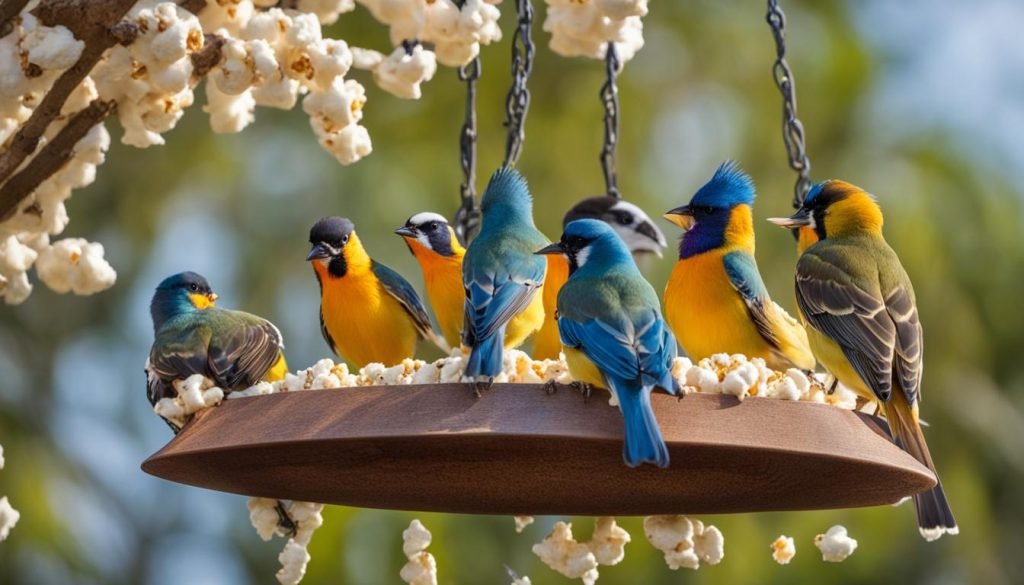
Bird-Friendly Alternatives to Popcorn
While popcorn can be a suitable snack for birds in moderation, there are several bird-friendly alternatives that provide more nutritional value. These alternatives include seeds, fruits, nuts, mealworms, suet, cracked corn, vegetables, berries, and commercial birdseed mixes.
Seeds, such as sunflower, safflower, millet, and nyjer, are rich in essential nutrients and can be a great source of energy for birds. Fresh or dried fruits, like sliced apples, oranges, or raisins, provide vitamins and antioxidants. Unsalted and unsweetened nuts, such as peanuts or almonds, are high in healthy fats and proteins.
Mealworms, both live and dried, are a fantastic source of protein for birds. Suet, made from animal fat, is a high-calorie treat that helps birds stay warm during cold weather. Cracked corn is readily available and can be a favorite among many bird species.
Vegetables, like carrots or lettuce, and berries, such as blueberries or strawberries, can also be offered to birds as a healthy and refreshing snack. Additionally, commercial birdseed mixes that contain a variety of seeds, grains, and fruits can provide a well-rounded diet for your feathered friends.
Popcorn Safety Tips for Birds
Feeding popcorn to birds can be a fun and entertaining experience for both bird watchers and our feathered friends. However, it’s important to take certain precautions to ensure the safety of the birds. Here are some popcorn safety tips for birds:
1. Choose the right popcorn
When offering popcorn to birds, it’s crucial to choose plain, unsalted, and unbuttered popcorn. Avoid popcorn that is seasoned with salt, butter, or artificial flavorings, as these can be harmful to birds. Look for popcorn that is free from additives and seasonings to ensure the health and well-being of the birds.
2. Offer popcorn in moderation
While birds can enjoy the occasional treat of popcorn, it should not replace their regular diet. Popcorn lacks essential nutrients that birds need for a balanced diet, so it should be offered in small quantities and as a supplement to their natural foods. Always remember that popcorn should be an occasional treat, not a primary food source for birds.
3. Monitor the birds while they eat
It’s important to monitor the birds while they are eating popcorn to ensure their safety. Keep an eye out for any signs of choking or discomfort and make sure they are able to consume the popcorn without any issues. If you notice any issues or difficulties, remove the popcorn immediately and provide the birds with fresh water to help them swallow properly.
By following these popcorn safety tips, you can enjoy responsibly feeding popcorn to birds and enhance your bird-watching experience. Remember to prioritize the health and well-being of the birds by providing them with a variety of bird-friendly foods that offer the necessary nutrition for their overall health.
Conclusion
In conclusion, birds can enjoy plain, unsalted, and unbuttered popcorn as an occasional treat in their diet. However, it’s crucial to remember that popcorn should not replace their regular food sources. It should be offered in moderation to ensure their nutritional needs are met.
When providing popcorn to birds, choose varieties that are free from salt, butter, or artificial flavorings. Always monitor the bird while it’s eating to prevent any choking hazards. It’s also important to offer a diverse range of bird-friendly foods to ensure their overall health and well-being.
Remember, while popcorn can be a fun and entertaining snack for birds, it should not be the sole focus of their diet. Incorporate other nutritious options such as seeds, fruits, nuts, and insects to provide a balanced and fulfilling feeding experience for our feathered friends.
FAQ
Can birds eat popcorn?
Yes, birds can eat plain, unsalted, and unbuttered popcorn in moderation.
Is popcorn safe for birds?
Popcorn itself is not toxic to birds, but it’s important to consider the type of popcorn, how it’s prepared, and how much is given to the bird.
What are the benefits of birds eating popcorn?
Popcorn provides carbohydrates for energy, fiber for a healthy digestive system, and small amounts of protein, minerals, and vitamins. It can also be an entertaining and stimulating snack for birds.
How should I prepare popcorn for birds?
Use plain, unseasoned popcorn without any additives. Allow the popcorn to cool before offering it to birds. Offer small pieces to smaller birds and larger pieces to larger birds.
Are there bird-friendly alternatives to popcorn?
Yes, there are several alternatives that provide more nutritional value, including seeds, fruits, nuts, mealworms, suet, cracked corn, vegetables, berries, and commercial birdseed mixes.
What are some popcorn safety tips for birds?
Avoid feeding birds popcorn that is salted, buttered, burnt, or soggy. Do not use popcorn as a primary food source or overfeed them with excessive amounts. Avoid feeding popcorn in high temperatures or areas with predators. Always check for signs of spoilage and maintain a clean feeding environment.

